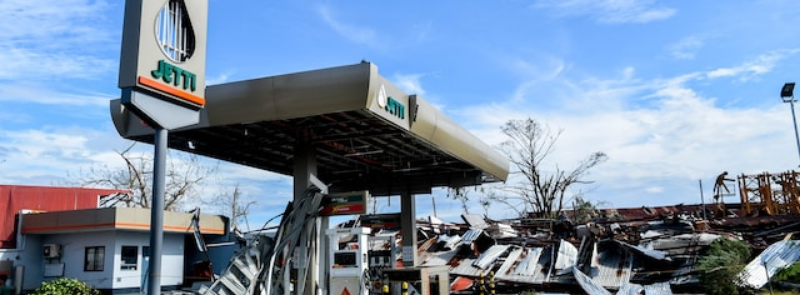
When It Occurs
Annually Every Month of September
Official Website
Timeline
Days Passed (905)
# Hashtags
#NationalPreparednessMonth #EmergencyManagement
Each September, the United States dedicates National Preparedness Month to emphasize the importance of readiness for any potential disaster, be it natural or human-made. This observance serves as a reminder for individuals, families, communities, and businesses to take proactive steps in preparation. The goal is to mitigate the impact of significant emergencies by ensuring that everyone, regardless of age, is equipped and informed to face such situations.
Origins and History
The history of National Preparedness Month is closely tied to the efforts of FEMA and other organizations dedicated to emergency management and disaster preparedness:
- Initiation by FEMA: National Preparedness Month was established in 2004 by FEMA, an agency of the U.S. Department of Homeland Security, to raise awareness about the importance of disaster preparedness. The goal is to encourage Americans to take steps to prepare for emergencies in their homes, businesses, schools, and communities.
- Annual Observance: Every September, various government agencies, non-profit organizations, and community groups come together to promote preparedness activities and provide resources to help people prepare for disasters.
The Significance of Preparedness
Preparedness is crucial for several reasons:
- Risk Reduction: Being prepared can significantly reduce the risks associated with disasters. It helps minimize the impact on lives, property, and the environment.
- Enhanced Resilience: Prepared communities are more resilient and can recover more quickly from disasters. Preparedness efforts strengthen the ability to respond effectively to emergencies.
- Life-Saving Measures: Having a plan and necessary supplies can save lives during an emergency. It ensures that individuals and families know what to do and where to go when a disaster strikes.
Ways to Participate in National Preparedness Month
There are many practical and impactful ways to participate in National Preparedness Month:
- Create an Emergency Plan: Develop a comprehensive emergency plan for your household. Discuss and practice the plan with all family members, including evacuation routes, communication methods, and meeting points.
- Build an Emergency Kit: Assemble an emergency supply kit with essential items such as water, non-perishable food, medications, first aid supplies, flashlights, batteries, and important documents. Ensure the kit is accessible and maintained regularly.
- Stay Informed: Sign up for emergency alerts and notifications from local authorities. Stay informed about the types of disasters that could affect your area and the appropriate response actions.
- Educate Yourself and Others: Learn about different types of disasters and how to prepare for them. Share this knowledge with friends, family, and community members. Attend workshops, webinars, or community events focused on emergency preparedness.
- Get Involved in Community Preparedness: Join or start a community emergency response team (CERT) or participate in local preparedness activities. Volunteer with organizations that focus on disaster response and recovery.
- Review Insurance Policies: Check your insurance coverage to ensure it is adequate for the types of disasters that could affect your area. Consider additional coverage for floods, earthquakes, or other specific risks.
- Plan for Special Needs: If you have family members with special needs, make sure your emergency plan and kit address their specific requirements. This includes medical needs, mobility issues, and dietary restrictions.
- Practice Your Plan: Regularly practice your emergency plan with your household. Conduct drills for different scenarios, such as fire evacuations or shelter-in-place situations.
Key Themes and Focus Areas
Each year, National Preparedness Month has specific themes and focus areas to help guide preparedness efforts. These can include:
- Make a Plan: Emphasizing the importance of having an emergency plan and discussing it with all household members.
- Build a Kit: Highlighting the necessity of having a well-stocked emergency supply kit.
- Prepare for Disasters: Providing information on how to prepare for various types of disasters, including natural and man-made events.
- Teach Youth About Preparedness: Encouraging families to involve children in preparedness activities and educate them about emergency procedures.
Fun Facts About Preparedness
- Disaster Frequency: The United States experiences a wide range of natural disasters, including hurricanes, tornadoes, floods, wildfires, and earthquakes. Preparedness helps mitigate the impact of these events.
- Emergency Alerts: Many communities have emergency alert systems that can send notifications to your phone or email. These alerts provide timely information about imminent threats and safety instructions.
- Preparedness Saves Money: Investing in preparedness measures can save money in the long run by reducing the costs associated with disaster recovery and property damage.
Resources for Preparedness
Several organizations and agencies provide resources to help with preparedness efforts:
- FEMA: Offers a wide range of resources, including guides, checklists, and training materials, to help individuals and communities prepare for disasters.
- Ready.gov: A FEMA website that provides comprehensive information on how to prepare for different types of emergencies and disasters.
- American Red Cross: Offers preparedness training, resources, and emergency response services.
Conclusion
National Preparedness Month is a vital observance that underscores the importance of being ready for emergencies and disasters. By creating an emergency plan, building a supply kit, staying informed, and participating in community preparedness activities, individuals and families can enhance their resilience and ensure they are better equipped to handle unexpected events. During September, take the time to review and improve your preparedness efforts, and encourage others to do the same.


